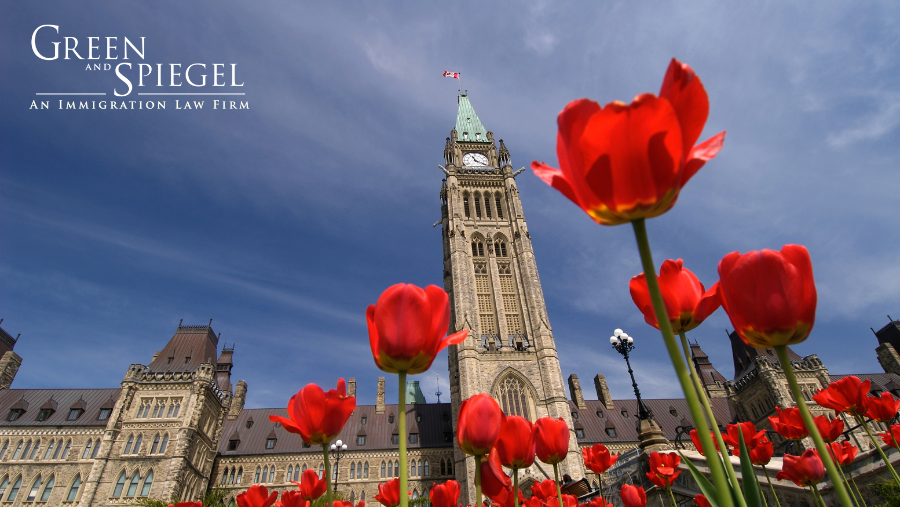As we continue to venture into unchartered waters surrounding COVID 19, the Canadian Government has implemented measures to help contain the virus. Namely, significant travel restrictions have been put in place in an effort to decrease the spread of COVID 19.
Over the last week, the Government of Canada has laid out a series of travel restrictions and exemptions. Below are some of the most pressing questions relating to Canadian immigration, as of March 23, 2020.
Q: Who can fly to Canada?
A: Only Canadian Citizens, Canadian permanent residents, and U.S. citizens are allowed to enter Canada by airplane. Foreign nationals travelling from the US who have been in the US for at least 14 days will be able to enter Canada. Any passenger who has symptoms of the virus will not be permitted to board an airplane to Canada. All travellers arriving in Canada must isolate upon their entry to Canada for 14 days.
Q: Who can travel from the United States to Canada by land?
Due to an agreement between Canada and the United States, individuals travelling to Canada for non-essential purposes, such as for a vacation or shopping, will not be able to enter. Legitimate travel includes: travel for essential and business purposes, diplomatic travel, travelling to care for family members, and trucking for supply chain purposes. Canadians currently in the United States can return back to Canada. All travellers arriving in Canada must isolate upon their entry to Canada for 14 days.
Note that again, entry for essential purposes is restricted to Canadian citizens, permanent residents, U.S. citizens, and foreign nationals who have been in the US for at least 14 days.
Q: Who is exempt from these travel restrictions?
A: The above travel restrictions will not apply to temporary foreign workers, international students with valid study permits, and prospective international students who have been approved for a study permit before March 18, 2020. Foreign nationals who were approved for permanent residence before March 16, 2020, but who have not yet travelled to Canada will also be exempt. Although these exemptions have been announced, they are not officially in place and these individuals should not travel to Canada at this time.
Exemptions also apply to immediate family members of Canadian citizens and permanent residents. There are other exemptions available to individuals’ whose presence in Canada would be in the nation’s interest and passengers in transit through Canada.
Q: Who is an immediate family member?
A: Immediate family members include a Canadian citizen or permanent resident’s:
- Spouse or common law partner;
- Dependent child or their spouse or common-law partner’s dependent child;
- Dependent child of a dependent child;
- Parent or step-parent or their spouse or common-law partner’s parent or step-parent; or
- Guardian or tutor.
This definition of immediate family member is broader than the definition of a family member in the Immigration and Refugee Protection Act.
Q: Will my temporary or permanent residence applications continue to be accepted and processed during this time?
A: Applications are being accepted and processed at this time, however, delays can be expected. As there is great uncertainty ahead, the processing times posted may be subject to change. Further, the travel restrictions will still apply, making certain applications, like obtaining a visitor visa for non-essential travel unfruitful. There may be challenges with completing steps in the application process, such as providing biometrics or completing a medical exam. The inability to provide biometrics or complete a medical exam due to the situation will not be a ground for refusal.
Q: My temporary residence status is about to expire and I am currently in Canada, what should I do?
A: Temporary Residents in Canada must continue to maintain valid status in Canada. Exceptions are not being made on the basis of COVID-19. Temporary residents must ensure to respect the terms and conditions of their status and be sure to extend their status where applicable.
Q: I am an international student currently studying in Canada. My classes have now been moved to an online format because of the virus. Will this affect my post-graduate work permit eligibility?
IRCC acknowledges this unique situation and accepts that courses that are now going to be offered online on an extraordinary basis due to the virus. This scenario will not affect a student’s eligibility for a post-graduate work permit.
We hope that the above information can provide a little clarity during these uncertain times. Should you have any immigration queries, please do not hesitate to contact us.






